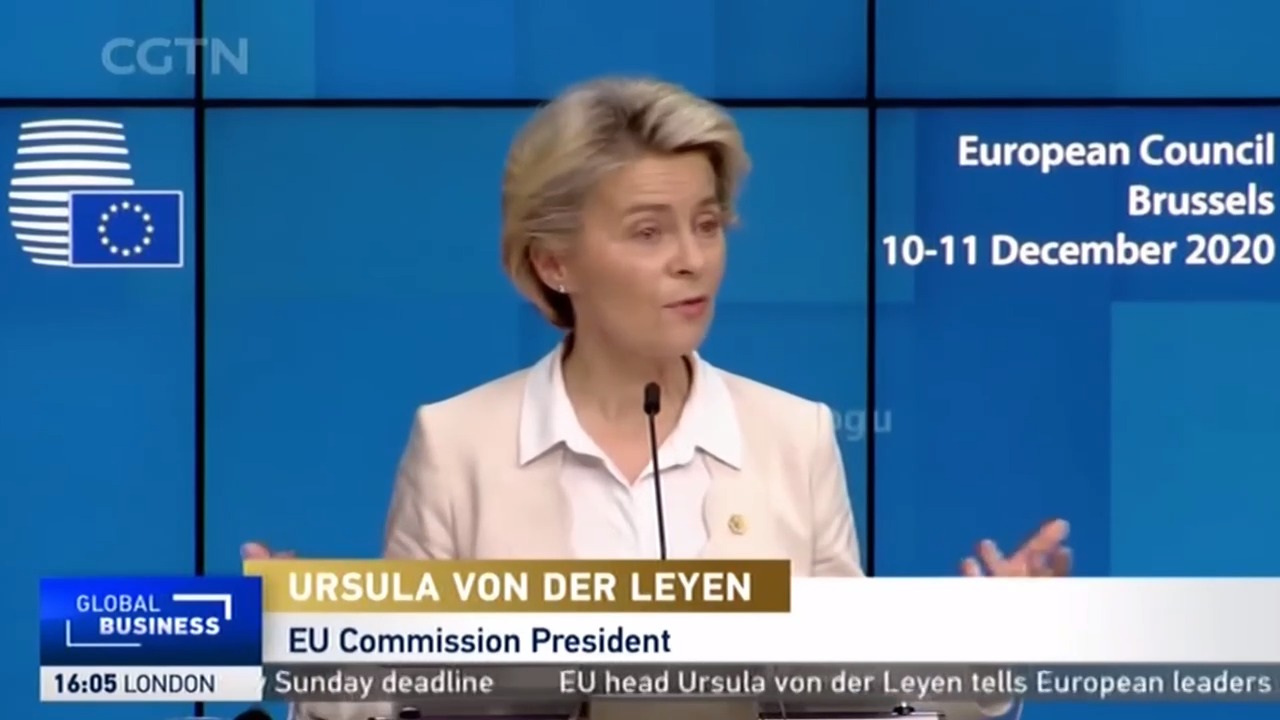05:20

UK Prime Minister Boris Johnson has said it is "very, very likely" the country will leave the European Union without a trade deal, while the European Commission President Ursula von der Leyen also has "low expectations" of an agreement.
The UK quit the EU in January but a transition period has left arrangements unchanged until December 31, when it will fully leave the bloc after 48 years, with or without a deal on how trade will work in the future.
"It's looking very, very likely we'll have to go for a solution that I think will be wonderful for the UK, we'll be able to do exactly what we want from January 1, it will obviously be different from what we set out to achieve," said Johnson.
"If there's a big offer, a big change in what they're saying then I must say that I'm yet to see it."
Johnson warned businesses on Thursday, as EU leaders were meeting in Brussels, to prepare for a no-deal exit, saying there was "a strong possibility" Britain and the EU would fail to secure an agreement.

In Brussels, Von der Leyen told the bloc's leaders there were "low expectations" a post-Brexit trade deal could be struck, EU sources told AFP on Friday.
The UK's Culture Secretary Oliver Dowden has admitted that leaving without a deal would be "choppy" but backed Johnson saying that no British leader could accept the EU's demands on fishing rights or for the UK to have to stick to EU regulatory rules as part of the "level playing field."
He told Sky News that agreement "cannot come at any price." He added of a no-deal: "If it comes to it, it will be choppy but we can survive and indeed thrive over the longer run."
While some EU diplomats have cast Johnson's rhetoric as theatrics intended to wrench out a deal and please his domestic Brexit supporters, British officials say London cannot accept the EU's demands and caution that no deal is on the cards.
If the Brexit process ends with no deal agreed on future trade, many experts predict that, at least in the short term, it would damage the economies of northern Europe, snarl borders and seriously disrupt delicate supply chains that stretch across Europe and beyond.

Ursula von der Leyen, center, has told EU leaders she has 'low expectations' of a deal being agreed. /Geert Vanden Wijngaert/Bloomberg/Getty
Ursula von der Leyen, center, has told EU leaders she has 'low expectations' of a deal being agreed. /Geert Vanden Wijngaert/Bloomberg/Getty
As EU leaders lined up to warn of the failure of talks, investors started to price in the risk of a chaotic finale to the five-year Brexit crisis.
British stocks fell, eurozone government bond yields fell and sterling fell about 1 percent against the dollar and the euro.
Italy's Prime Minister Giuseppe Conte said there were still fundamental issues unresolved in the trade talks.
"Time is running out and we need to prepare for a hard Brexit," he said, referring to an abrupt rupture in trade arrangements.
EU leaders rejected a proposal from Johnson for a Brexit call with Germany's Chancellor Angela Merkel and France's President Emmanuel Macron on Monday, EU officials said.
Johnson is under pressure from Brexit supporters in Britain not to cave in to any EU demands that they say could undermine his promises to regain Britain's sovereignty.
Macron also faces domestic pressure, with French fishermen urging him to ensure the EU defends their fishing rights.
Asked by a reporter about an EU proposal for a one-year contingency plan, under which EU fishermen would keep access to Britain's fishing waters, he said: "I'm not asking to have my cake and eat it, no. All I want is a cake that's worth its weight. Because I won't give up my share of it either."
The Bank of England said it had taken steps to keep banks lending through 2021 as Britain prepares for any market disruption from a big change in the trading relationship with the EU, while also dealing with the COVID-19 pandemic.
Source(s): Reuters
,AFP

